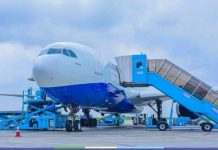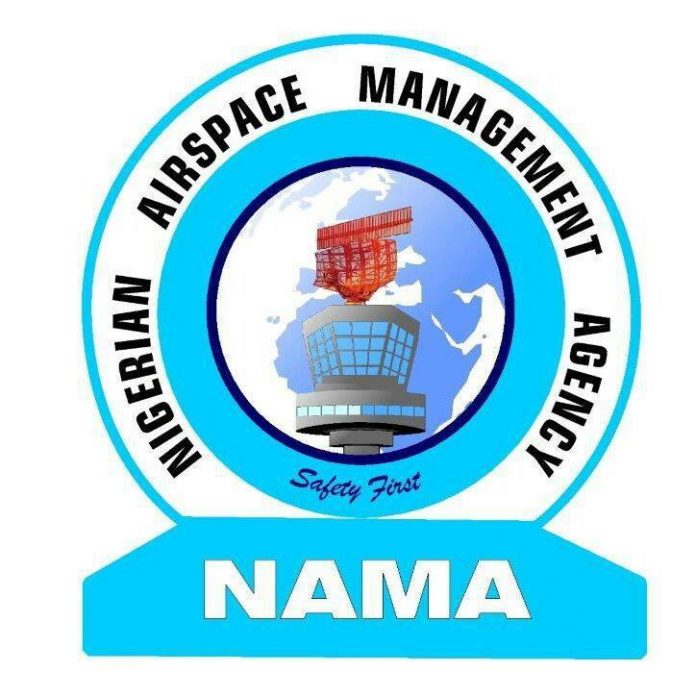The Nigerian Airspace Management Agency (NAMA) on Tuesday recommended the establishment of the National Aviation Security Coordination Framework to strengthen aviation security in line with international best practices.
The agency’s managing director, Farouk Umar, gave the recommendations at a high-level security stakeholders symposium in Lagos.
“NAMA recommends the creation of a National Aviation Security Coordination Framework.
“The framework will be anchored by the Federal Airports Authority of Nigeria and regularly inspected or audited by NCAA to drive seamless collaboration among all security stakeholders,” Mr Umar said.
He was represented by Isemiuhonmon Egbadon, a director at NAMA, at the symposium organised by the Nigeria Civil Aviation Authority (NCAA), themed “Fundamentality of Aviation Security in Achieving the Safe Skies Goal.”
Mr Umar stressed the need to institutionalise a Joint Aviation Security Task Force.
“This task force should convene regularly to share intelligence, develop joint action plans, conduct simulations, and issue coordinated advisories.
“Also, to prioritise investment in security infrastructure, stakeholders must invest in modern aviation security equipment such as biometric access systems, smart surveillance solutions, integrated command centres, and advanced threat detection tools,” he said.
According to him, funding mechanisms should be developed to ensure sustained upgrades and maintenance while adopting a comprehensive capacity-building and incentive programme.
He noted that security personnel should undergo recurrent training accredited by the International Civil Aviation Organisation (ICAO) and relevant bodies.
The NAMA boss added that the training must cover physical and cyber security, behavioural detection, and emergency response.
Mr Umar said a structured motivation framework, including health benefits, hazard allowances, and career progression plans, should be introduced to retain top talents.
He also recommended the enforcement of merit-based recruitment and certification standards, while a centralised vetting system should be established by NCAA in conjunction with the recruiting agency.
Mr Umar identified the challenges inhibiting effective aviation security as a lack of synergy among security agencies, inadequate investment in security infrastructure and equipment, capacity gaps, and poor motivation and recruitment of unqualified personnel into sensitive positions.
Mr Umar said aviation security must transition from a reactive to a proactive paradigm grounded in collaboration, competence, and continuous investment to achieve safe skies.
In his keynote address, a former director-general of the NCAA, Harold Demuren, urged the government and airlines to conduct a thorough risk assessment of potential conflict zones.
Mr Demuren added that ICAO and other organisations provided guidance and resources to help mitigate these risks.
“With increasing reliance on digital platforms, cyber security threats are becoming a major concern, requiring proactive cyber security measures.
”The industry is receiving next-generation carry-on baggage screening systems and millimetre-wave hand-held wands, which will assist in 100 per cent detection,” he said.
Mr Demuren noted that ICAO had recently updated the Global Aviation Security Plan, adding that aviation security is the responsibility of everyone and training must be prioritised.
He called for the continuous collaboration of government agencies such as NCAA, FAAN, Aviation Security, Nigerian Air Force, National Drug Law Enforcement Agency, Nigeria Police Force, Nigeria Immigrations Service and private security, among others.
(NAN)













